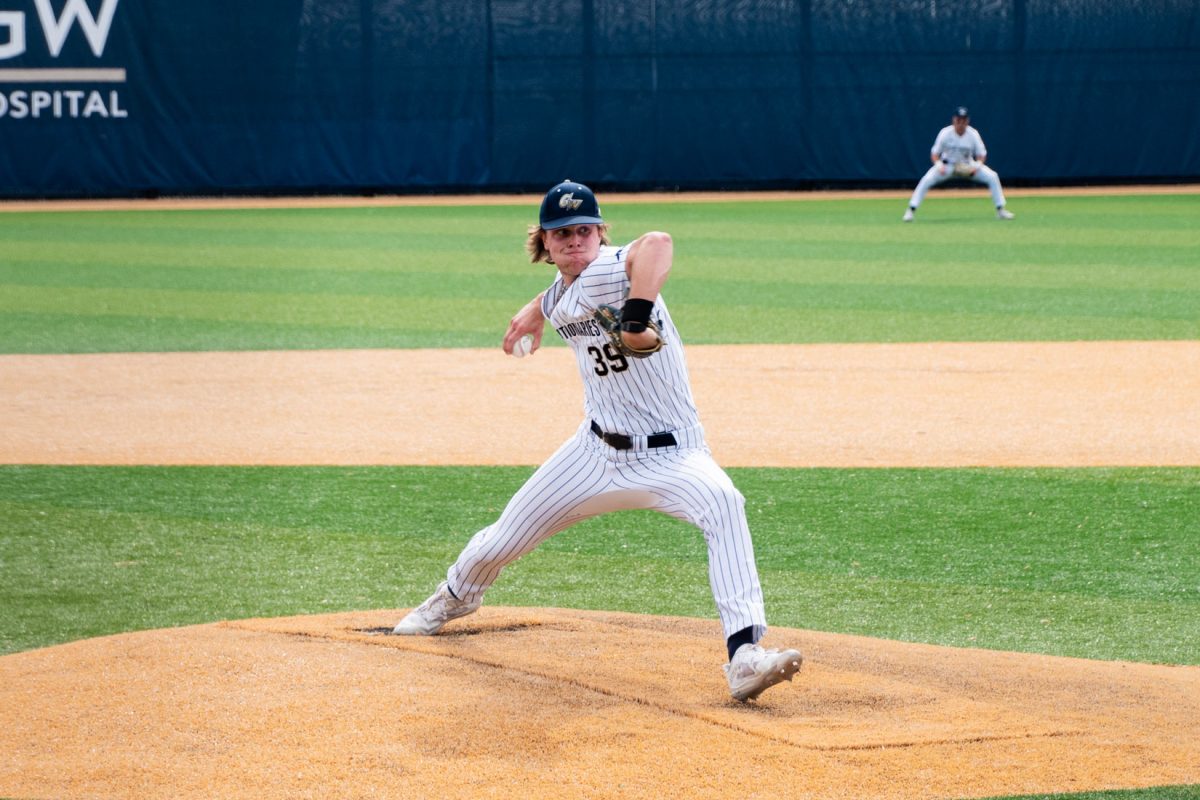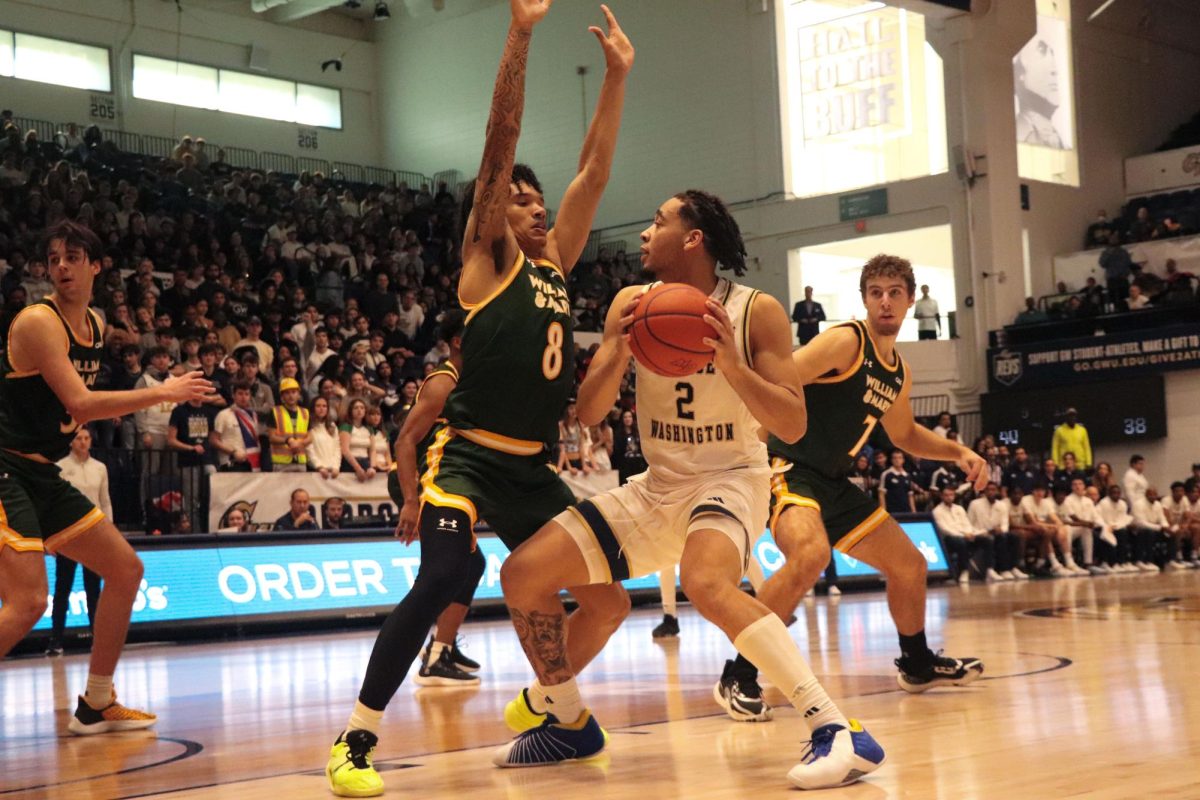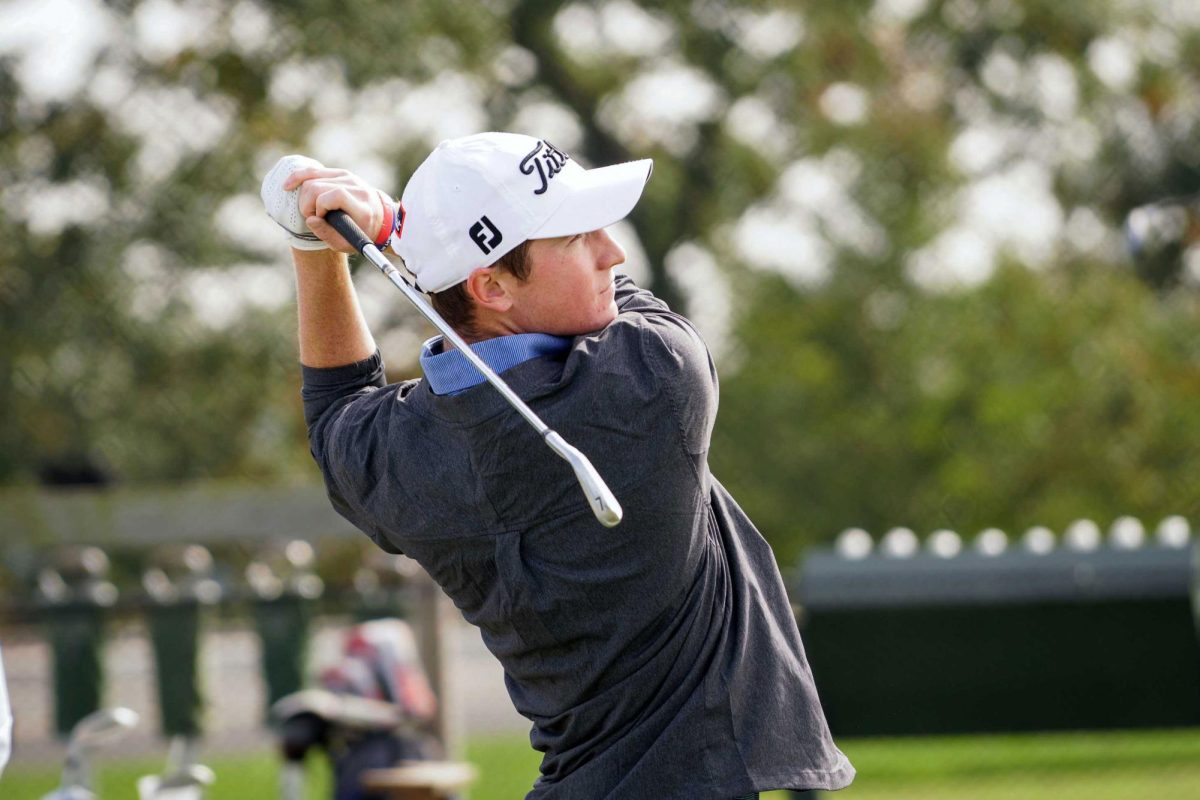A GW alumnus and Athletic Department donor was indicted last week on federal charges that he organized and ran a gambling ring that bet on college basketball and other sports.
Herbert David Meyers, a GW Law School graduate, and two associates are accused of handling 50,000 gambling calls out of Potomac, Md., over seven months. They used a toll-free number, according to a Justice Department indictment.
Meyers, 60, has been a season-ticket holder at GW men’s basketball games for 38 years and attended two games this year, said Assistant Athletic Director for Advancement Dom Perno. Perno added that the University has not reported the indictment to the NCAA. The indictment was handed down March 15.
Meyers was charged with seven counts of conspiracy to conduct an illegal gambling business and money laundering. It is unclear how much money Meyers made gambling, how much he has donated to the University, and how close he was to basketball players and administration officials.
Meyers was not available for comment and his attorney, Barry Helfand, said he is not familiar with the situation yet.
Donations afford some access to players and men’s basketball head coach Karl Hobbs. A donation of $2,500 gives an invitation to the “Meet the Colonials” evening and lunch with Hobbs, according to a University Web site. A donation of $5,000 gives the donor a dinner with Hobbs.
GW Director of Athletics Jack Kvancz said Meyers’ membership dues are due July 1, and if he is found guilty the University will no longer accept his money. A trial timeline has yet to be set, according to a Department of Justice news release.
The NCAA would not say if it’s investigating the gambling ring. Its officials do not comment on investigations, NCAA Associate Director of Media Relations Gail Dent said. She added that academic institutions are responsible for reporting possible violations to the NCAA.
“The normal procedure would be that the NCAA would review the (instance) and if it got to that point, investigate it,” Dent said in a phone interview Wednesday.
Chandra Bierwirth, the University’s assistant athletic director for compliance, said donors to the Athletic Department are not bound by the rules of the institution but that the University would have a concern with Meyers’ illegal activities.
“It is not an NCAA rules violation,” Bierwirth said Wednesday in a phone interview. “It has nothing to do with us.”
The indictment alleges that Meyers, his brother-in-law Robert Levine and Levine’s son Steve Levine ran the organization through a toll-free telephone number that received more than 50,000 calls from September 2002 to March 2003. The three advertised the organization by word of mouth and picked up and dropped off money at various locations throughout Maryland’s Montgomery County.
If convicted, Meyers faces up to 20 years in jail for money laundering and five years in jail for both conspiracy to conduct and conducting a gambling business, along with fines up to $500,000.
Perno said that Meyers has been a member of the Colonials Athletic Club, the GW athletic club, for “a few years,” but declined to comment on exactly how much money Meyers has contributed. To qualify as a member of the Colonials Athletic Club, one must donate at least $100 to the GW Athletic Department.







